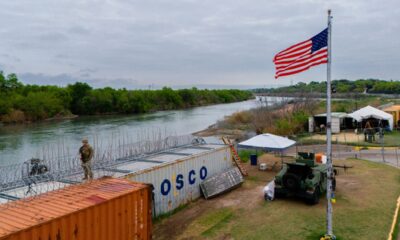As the ice melts from Alaska’s world famous lakes and rivers, it’s time for many Alaskans’ favorite summer pastime — fishing. More than 500,000 Alaskans and visitors will purchase sportfishing licenses as they pursue salmon, trout, halibut and countless other species across our great state. As a 25-year Alaska Wildlife Trooper, I have been a part of many of the state’s sport, personal use and commercial fisheries from an enforcement standpoint. I have also participated as an angler across the state. I have seen the damage that can be done to the state’s fisheries when people violate regulations and fish illegally. This summer, about 80 Alaska Wildlife Troopers will be on patrol across the state from the waters, trails and skies to protect Alaska’s $15 billion annual fishery resource.
As you head out to hit the water this year, here are a few tips to help you have a safe and citation-free season:
Learn the regulations. Before you go fishing pick up a copy of the fishing regulations for the area that you plan to fish. These regulations vary from area to area, and it is important that you understand the rules and can read the regulation booklet correctly. You can also find fishing regulations online at the Alaska Department of Fish and Game website. Many local vendors in your community have a paper copy of these regulations that you can carry with you. Pro tip: Pick up a few copies so when the first one gets wet, you will still have a good copy to look at.
Use the proper gear and equipment. Troopers issue many citations each year for the wrong “terminal gear.” This is the definition of what you are using at the end of your line. This may include things like treble hooks, single hooks, hook size and bait. Many areas, both in salt water and fresh water, have restrictions on these items. If you are unsure about what can or cannot be used, reach out to your local Alaska Wildlife Trooper office. We will be happy to discuss the regulations with you before you go fishing.
Be responsible and courteous. Alaska’s famous fisheries draw people from across the world to participate in these events. Be courteous to other fishermen, be responsible for your actions, and remember that we are all there for the same reason. Each year, Wildlife Troopers respond to multiple complaints about fishermen leaving trash, fish carcasses, and physical altercations with other fishermen. Remember that many rivers and streams are surrounded by private property. Be respectful of private property rights and know where you are at all times.
Fish legally. Alaska’s fishing regulations follow a complicated process of science, public input, and legal issues. These regulations are well thought-out and if followed will help ensure future generations will have opportunities to participate in Alaska’s fisheries. There is not a single community in Alaska that is not directly affected by fish resources. By following the rules, you are part of this equation and promote Alaska’s businesses directly. Businesses like tackle shops, sportfish guide businesses, marine supply stores, commercial fishing and tourism. The value of these fisheries as a food resource for Alaska and the world cannot be overstated. This necessitates that rules and regulations must be followed to guarantee future generations the opportunity to participate in these fisheries.
Wear your life jacket. Several times each year, troopers and our search and rescue partners respond to capsized boats, boating accidents, and fishermen falling into the water. Life jackets save lives. If you and your family members are out on the water, or near the water, this summer, please wear your life jacket.
If you meet an Alaska Wildlife Trooper this summer, please say hello as they work diligently to protect Alaska’s resources. They have a huge job with significant areas to cover. They are often spread thin throughout the summer and may not be able to respond to every report. If you see a violation, be a good witness and take notes on what you saw. Be specific about things like what car they were driving, the boat name or what they were wearing. The more specific you are, the better chance a Wildlife Trooper can find them later and investigate the violation. We rely on the public to help us protect this great resource.
I hope you enjoy the summer fishing season. Fish on!
Col. Bernard Chastain is the director of the Division of Alaska Wildlife Troopers. He has been an Alaska Wildlife Trooper for 25 years.
The views expressed here are the writer’s and are not necessarily endorsed by the Anchorage Daily News, which welcomes a broad range of viewpoints. To submit a piece for consideration, email commentary(at)adn.com. Send submissions shorter than 200 words to letters@adn.com or click here to submit via any web browser. Read our full guidelines for letters and commentaries here.

:quality(70)/cloudfront-us-east-1.images.arcpublishing.com/adn/XI7J6HCC5RASFMRXAJWJ6TTVA4.JPG)










:quality(70)/cloudfront-us-east-1.images.arcpublishing.com/adn/T4XVDJRAANBJRIABDHUPVM2OUQ.jpg)
:quality(70)/cloudfront-us-east-1.images.arcpublishing.com/adn/DIZPYDT3FBEFJCRH5O5IJMQYY4.jpg)
:quality(70)/cloudfront-us-east-1.images.arcpublishing.com/adn/3TJN4IQCAVC7FLWUP325O5LKF4.jpg)










/cdn.vox-cdn.com/uploads/chorus_asset/file/25822586/STK169_ZUCKERBERG_MAGA_STKS491_CVIRGINIA_A.jpg)

/cdn.vox-cdn.com/uploads/chorus_asset/file/25821992/videoframe_720397.png)



/cdn.vox-cdn.com/uploads/chorus_asset/file/23935558/acastro_STK103__01.jpg)
